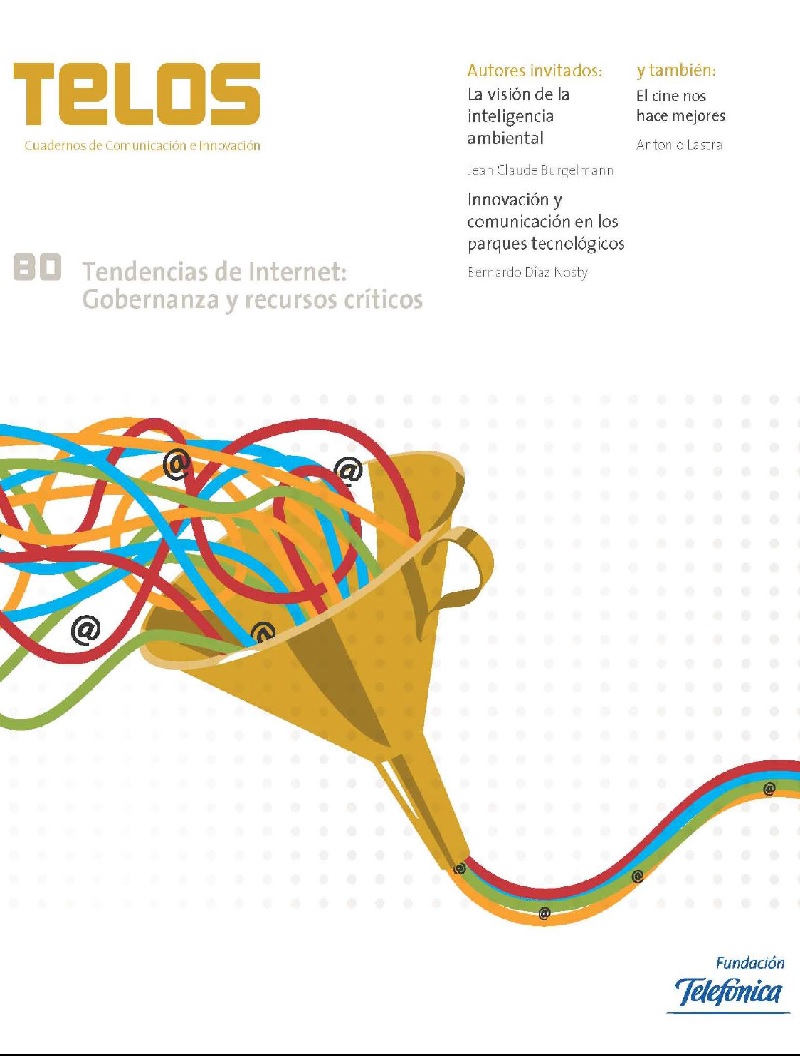
TELOS 80
The Internet has become the backbone of the globalised world and it is therefore not surprising that interest has grown in its control and management. Like the Net itself, governance is a fairly new subject, as are the codes and protocols that support it. Governance is essentially based on collaboration among all the parties who are interested in having their share of control in cyberspace.
Controlling resources means power on the Internet, and has become one of the core topics of debate that has fuelled conflict for governments and international organisations. In the early years of Internet development, the dominant view was that governments should stay out of the Internet, but governments have recently become aware of their limits in terms of developing policies and making decisions that affect the Internet. In addition, users also have an active role on the Internet by contributing to its development and/or benefiting from it, meaning they tend to regard it as a global public asset. Lastly, the ‘techie’ community, the prime driver of early developments on the Internet, has stated on numerous occasions that any exercise of control by governments would slow the process of innovation and would impose restrictions on individual rights and freedoms. Instead, it calls for self-governance in which governments could participate but which they would not control.